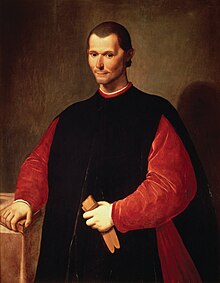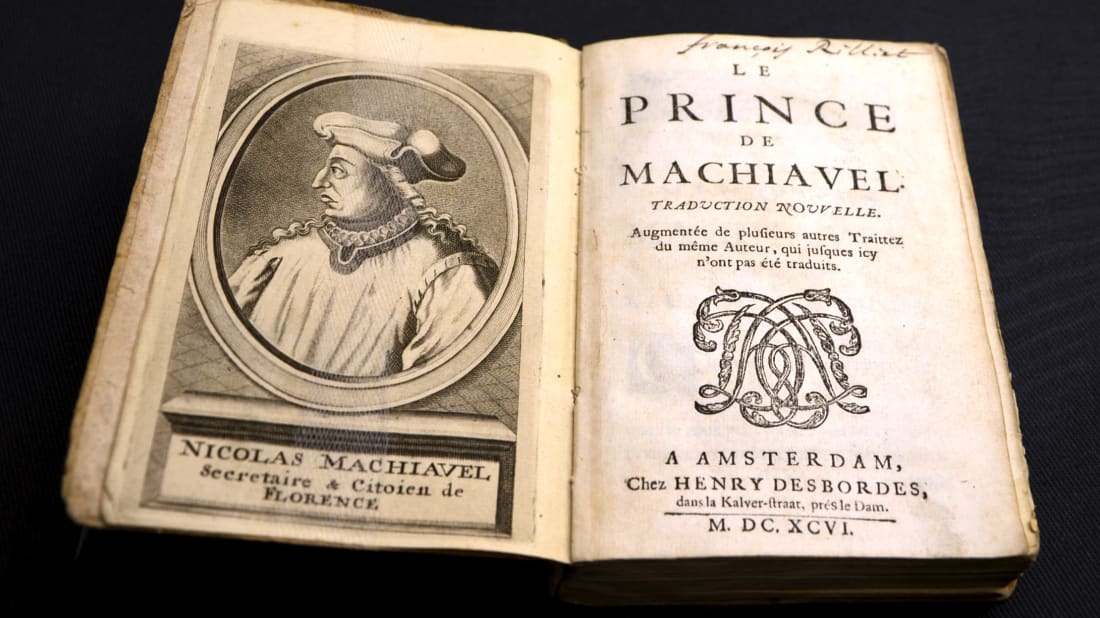The Prince
 |
| Portrait of Niccolo Machiavelli 1469-1527 By Santi di Tito Wikipedia |
The books article, "From Machiavelli's Prince: A New Reading" is by Erica Benner and the author of "The Prince" is Niccolo Machiavelli. The books basic purpose provided a guide to political action and how to do so in a safe state. "Church and other political authorities soon came to view it as a major troublemaker" (Benner 300). It defended the justice, a virtue against the corrupted Pope and monarchs. They appear to be the enemies.
It's about how to keep their parties safe and secure in the real world which involved their politics. "Therefore, one who becomes a prince through the support of the people must keep them well disposed towards him, something which should be easy, since all they ask of him is not to be oppressed" (Machiavelli 32).
The Prince was warned about control over people who cared about freedom. And for citizens to know the signs of a control-hungry behavior in regards to their leaders. "Machiavelli's book shows readers the dire consequences that ensure when our language and practices fail clearly to distinguish them"(Benner 300). What Machiavelli offered, was judgement about methods of better or worse ways to rule. As he had seen what other rulers failed to do or what worked for them.
 |
| Photo of a book The Prince |
In the article, the author helped me understand Machiavelli's ideas better by mentioning that there is solutions in The Prince contradictions. I selected this article because it explained the teachings of Machiavelli. And it gave me a sense of the work that was bestowed upon the rulers in that time. In the article it mentions, "The best way to teach human beings how to avoid evils is to show they themselves produce them, often under self-deceptions about their own shrewdness or virtue"(Benner 309). "A certain prince of our own times, whom it is just as well not to name, preaches nothing but peace and faithfulness, and to the one and the other he is extraordinarily hostile; and if, on many occasions, he had observed both of those things, he would have had either his reputation or his state taken from him" (Machiavelli 57).
As we conclude, Machiavelli's ideas impacted many different people, some of his ideas were contradictory as it was stated in the article in the end. Is it safe to be feared than to be loved? "I concluded that since men love according to their own inclination and fear at the will of the prince, a wise prince must lay foundation on what is his own and not on what belongs to others; he must only take pains to escape hatred, as I said" (Machiavelli 54). I think it's worth the read if you'd like to have a go at the times on what was suggested for rulers during that time. It may be hard to understand at times since Machiavelli views fluctuate on what he says.
As I had reached the articles at the end of the book, I do agree that it is important to hear the views of these authors point of views. It gives more clarification to what you just read. I recommend first reading chapters 15-18, it helps interpret what The Prince was about more or less. "It remains now to be seen what the methods and procedures should be for a prince in dealing with his subjects and allies" (Machiavelli 48).
Machiavelli (5:15 video)
Machiavelli, Niccolo, and Wayne A. Reborn. The Prince. Third Norton Critical Edition, 2020.
Wikipedia The Free Encyclopedia. https://en.wikipedia.org/wiki/Niccol%C3%B2_Machiavelli. Accessed 24 Feb. 2022.
Comments
Post a Comment